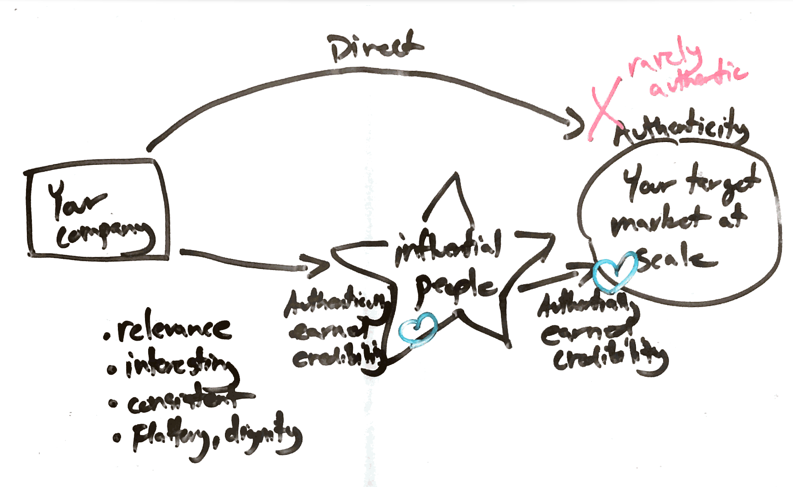As the world moves away from believing as much as it used to in brand communication, toward a world of networked peer communication and a real emphasis on authenticity, I think there’s a new way to achieve scale.
Picture a person who’s earned a big, relevant, audience online because they’re smart, entertaining, and they have good taste. In B2B, they’re probably forward looking, well-connected, and good at critical thinking. You can’t BS them, at least not easily.
One-to-one communication with people like that is a powerful new way to communicate with the world at scale. If you can win them over, they’ll tell their large, relevant, audience about your business. When they do, it will be more relatable, authentic, and credible than anything your brand voice says directly to the world.
In order for smart, well-connected, critical thinking people who have built big audiences to tell those audiences about you – you’re going to have to communicate with them one-to-one, authentically, credibly, and probably over time. You’ll want to be strategic about it, because lots of people want the attention of people like that. Unless it’s available for sale, you’re going to need to earn it.
I made a little white board sketch about it.

Communicating with your target market at scale, by building authentic relationships with credible market influencers.
The idea here is that your company wants to communicate at scale with your target market but that market now has a shield of authenticity around it. Direct brand communication is too often inauthentic and thus ineffective. But influencers have authentically earned credibility and can speak to your market at scale. Thus, communicating one-to-one with them, with authentically earned credibility, is a way to achieve that scale. To do so, be relevant, interesting, consistent, and use flattery while maintaining your dignity.
All of this is made easier than ever, of course, by the technology we’re building at Little Bird.